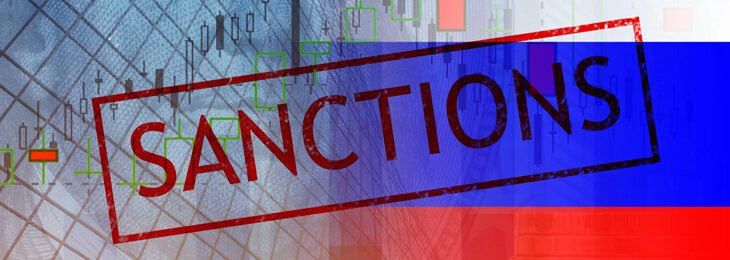
"How do I love thee? Let me count the ways" is the extraordinarily famous opening line of a poem by Elizabeth Barrett Browning. Though Ms. Browning was undoubtedly not directly referring to the use of lotteries for illegal activities, the line can easily be referencing the love money launderers have for lotteries and lottery winners. It is easy to see why criminals gravitate toward lotteries to launder money.
An attribute that makes lottery winners so appealing to scammers is the availability of liquid assets. Lottery winners are the recipients of liquid assets either in the form of a lump-sum payment or in annuity payments. When deciding what to do with lottery winnings, the winner will, in all likelihood, encounter numerous offers to "invest" the funds—some legitimate and some not. Many states have laws that require the names of winners to be published thus making the winners even more likely to become prey for criminals. It truly becomes a case of "buyer beware" when winning the lottery.
With apologies to Ms. Browning, let us count examples of money laundering schemes involving a lottery:
1. Purchasing a Winning Ticket from the Legitimate Winner(s)
A July 2011 news article1 reported that a "notorious drug dealer from Baltimore" was indicted on money laundering charges, among other charges, for purchasing winning state lottery tickets from the real winners. The indictment2 alleges the co-conspirators engaged in the purchase of the lottery tickets to conceal from the Internal Revenue Service the nature of the income originating from his illegal drug sales.
Undoubtedly the most famous case3 of the purchase of a winning lottery ticket involves South Boston gangster James "Whitey'' Bulger who was recently captured ending a 16-year international manhunt. The 81-year old Bulger is alleged to have paid $2 million cash for an interest in a winning lottery ticket purchased in 1991 worth $14.3 million. Federal authorities believe the cash Bulger offered to purchase the winning ticket originated from illegal gambling, extortion and loan sharking. Officials believed it was Bulger's intent to use the 20-year annuity afforded by the winning ticket to legitimize his illicit income.
While the above case illustrates a straight cash for winning ticket purchase, lottery winners can be used for other types of laundering.
2. Purchasing a Large Dollar Asset from a Legitimate Winner
A 2004 news article4 detailed the case of a 73-year-old New York lottery winner who was convicted of concealing cash payments he received from convicted drug dealers on a home they bought from him. The underlying assumption is that the cash that the New York lottery winner accepted as undisclosed payment on the house was illegal proceeds originating from the drug business. However, reading new reports of the conviction, the acceptance of the illicit funds does not appear to be the nexus of the money laundering charge. The man allegedly accepted $29,000 in cash from the drug dealers which he tried to disguise by making three separate deposits of $9,000 each. It appears the man attempted to structure his cash deposits to avoid reporting requirements. The article also reported that the man claimed (on tax returns) only $9,000 of the $29,000 payment. The government alleged that he was trying to hide the remaining $20,000 to evade paying taxes on the funds. Anti-money laundering professionals know that structuring transactions to avoid reporting requirements is illegal. Thus, the structuring of his cash deposit is, most likely, what triggered the money laundering charge and resulted in conviction.
Though the two previous examples illustrate cases originating in the United States, the use of lotteries for money laundering can occur in any country, as illustrated by the next case. It is incredible in today's age of instant knowledge via the Internet that criminals have found ways to launder money on lotteries that do not exist. And, even with resources available to check information, criminals can con innocent victims into believing that they have won a lottery, usually foreign, when the victims have not even entered the lottery.
3. The Trusting Nature of the Elderly
The Financial Crimes Enforcement Network (FinCEN), the financial intelligence unit for the United States, issued advisory FIN-2011-A0035 alerting financial institutions and elder advocacy groups that older individuals may be targeted because, among other reasons, as a group they tend to hold or have access to high dollars. Add to the availability of funds, any number of contributing factors such as diminished capacity, caregiver malfeasance, generosity, and the result is the perfect storm for elder financial abuse.
In this next case,6 when the scammer happened upon a potential victim who did not have funds to advance for the typical lottery or "advance fee" scam, the scammer drew the victim into a different advance fee scheme. The scammer would inform the potential victim that he/she could earn the money needed to claim the lottery prize by depositing checks from other "winners" into his/her personal account and then forwarding the funds back to the lottery company.
With the use of lotteries in this money laundering scheme, it truly is a case of going back to basics: placement, layering and integration. By utilizing the unsuspecting victim's account, the scammer has placed the illicit proceeds (the "winners" checks) into the financial system. An additional benefit to using the victim's account is an added layer to the financial transaction trail.
4. Lottery Clubs and Lottery Pools
A simple search of the Internet will result in numerous lawsuits originating from "lottery clubs" or "lottery pools. A lottery club is when a group of people agree to contribute a specific amount of money on a scheduled basis to purchase lottery tickets with the understanding that the winnings will be shared equally among the group. The thinking behind lottery clubs and pools is that by purchasing multiple tickets for a single drawing, the overall chance of winning a prize increases dramatically.
While most lottery clubs are legitimate, some are illegal on their face, such as the case of the convenience store owner who created his own lottery pool.7 The article reported that it is illegal for someone who sells lottery tickets to profit from the sale. Or the case of the Michigan lottery pool8 that was accused of illegally re-selling lottery tickets for more than the face value. The illegal nature of the club/pool would result in the profits and/or winnings arising from the activities of the club/pool being illegal. Thus, pool members may be subject to a money laundering charge completely unaware that the winnings were illicit. Buyer Beware when joining a lottery club/pool. Not only should a club/pool participant be leery of strangers offering entry to a lottery club/pool but sometimes even people known to the participant can create legal issues for the participant.
There are legal cases where a pool member has been omitted from sharing winning proceeds for various reasons. When this happens, it is not necessarily a question of criminality but rather legality that must be answered by the civil courts. Though these cases would rarely result in a money laundering charge or conviction, it is further evidence of the financial dangers that lotteries pose to participants.
Let's discuss the elephant in the room for anti-money laundering professionals: Do the inherent risks for money laundering opportunities with lotteries necessarily result in lotteries being classified as "high risk" for money laundering and, thus, requiring enhanced due diligence? The Federal Financial Institutions Examination Council Bank Secrecy Act/Anti-Money Laundering Examination Manual suggests financial institutions consider "cash-intensive businesses (e.g., convenience stores, restaurants, retail stores, liquor stores, cigarette distributors, privately owned ATMs, vending machine operators, and parking garages)" to be "high-risk" customers.
In many states, state lottery tickets are sold at convenience stores and grocery stores which are most definitely cash-intensive businesses. Most states will not permit the use of credit cards to purchase lottery tickets making debit card purchases and cash the most common forms of payment for lottery tickets.
Though lottery sales are strongly regulated and audited, the cash-intensive nature of the business makes them ripe for money laundering. Keeping in mind that money launderers recognize a cost of doing business, it is not a stretch to think that bulk purchases of lottery tickets would be an attractive use for ill-gotten funds. The fact that the winning tickets to some scratch-off lottery games can be mathematically predicted increases the attractiveness of the lottery ticket purchase as a laundering tool as the risk of loss is decreased.
Famed Scottish Philosopher Adam Smith opined that "Adventure upon all the tickets in the lottery, and you lose for certain; and the greater the number of your tickets the nearer your approach to this certainty." Like playing the lottery, banking a lottery can result in a love-hate relationship due to the increased money laundering risks.
- http://www.lottery.com/stories/maryland-lottery-used-for-money-laundering.htm
- http://www.justice.gov/usao/md/Public-Affairs/press_releases/press08/SSIndictmentChargesStevenBlackwellandJoyEdisonin10MillionHeroinandMoneyLaunderingConspiracy.html
- http://www.boston.com/news/packages/whitey/globe_stories/1995/0718_us_orders_lottery_to_hold_bulger_s_winnings.htm
- http://www.lotterypost.com/news/83347
- http://www.fincen.gov/statutes_regs/guidance/html/fin-2011-a003.html
- http://www.europeanlotteryguild.com/latest_news/elg_news/new_version_of_old_lotto_scam_involves_money_laundering
- http://articles.sun-sentinel.com/1993-03-11/news/9301140725_1_million-lotto-jackpot-florida-lotto-lotto-games
- http://michigan.gov/ag/0,1607,7-164-46849_47203-156778-,00.html










